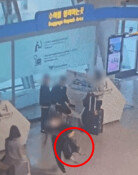U.S. says that all three legs of the triad should be deployed in Pacific region
U.S. says that all three legs of the triad should be deployed in Pacific region
Posted July. 04, 2015 01:03,
Claiming that the nuclear attack by North Korea, China and Russia is the only existential threat posed to America, high-ranking officials in Washington contended that American should have strategic nuclear triad on the Pacific region. The ultimate guarantor of U.S. nuclear deterrent, the triad refers to strategic nuclear bombers such as B-2, Intercontinental ballistic missiles (ICBM) such as Minuteman-III and submarine-launched ballistic missiles (SLBMs).
It is noted that Americas argument of nuclear deterrent on the Pacific region comes at a time when Washington has recently voiced out the critical role of nuclear deterrent against Pyongyang. On Tuesday, Center for Strategic and International Studies (CSIS), a Washington-based think tank, published its report, recommending that American redeploy a tactical nuclear weapon on the Korean peninsula after 2025 so as Claiming that the nuclear attack by North Korea, China and Russia is the only existential threat posed to America, high-ranking officials in Washington contended that American should have strategic nuclear triad on the Pacific region. The ultimate guarantor of U.S. nuclear deterrent, the triad refers to strategic nuclear bombers such as B-2, Intercontinental ballistic missiles (ICBM) such as Minuteman-III and submarine-launched ballistic missiles (SLBMs).
It is noted that Americas argument of nuclear deterrent on the Pacific region comes at a time when Washington has recently voiced out the critical role of nuclear deterrent against Pyongyang. On Tuesday, Center for Strategic and International Studies (CSIS), a Washington-based think tank, published its report, recommending that American redeploy a tactical nuclear weapon on the Korean peninsula after 2025 so as to deter increasing nuclear threat posed by Pyongyang.
Our nuclear deterrent force is the ultimate protection against a nuclear attack on the United States, the one known existential threat to the nation, Robert Work, Deputy Secretary of Defense, stated at a hearing on Nuclear Deterrence in the 21st Century hosted by House Armed Services Committee on Thursday (local time). He specified the three nations of Russia, China and North Korea who could launch a nuclear attack against the U.S. As in the case of Europe, we must find a way to pay for simultaneously modernizing all three legs of the triad, our dual capable tactical aircraft, and our nuclear command and control systems in East Asia, Vice Chairman James Winnefeld of the Joint Chiefs of staff said at the hearing as well.
Releasing 2014 Country Reports on Human Rights Practices on the same day, the State Department assessed that North Korea shows the worst case of human rights in the world. Since 2009, the department has selected such expressions as poor, deplorable and grim to describe human rights in Pyongyang but this time it used the phrase the worst in the world. deter increasing nuclear threat posed by Pyongyang.
Our nuclear deterrent force is the ultimate protection against a nuclear attack on the United States, the one known existential threat to the nation, Robert Work, Deputy Secretary of Defense, stated at a hearing on Nuclear Deterrence in the 21st Century hosted by House Armed Services Committee on Thursday (local time). He specified the three nations of Russia, China and North Korea who could launch a nuclear attack against the U.S. As in the case of Europe, we must find a way to pay for simultaneously modernizing all three legs of the triad, our dual capable tactical aircraft, and our nuclear command and control systems in East Asia, Vice Chairman James Winnefeld of the Joint Chiefs of staff said at the hearing as well.
Releasing 2014 Country Reports on Human Rights Practices on the same day, the State Department assessed that North Korea shows the worst case of human rights in the world. Since 2009, the department has selected such expressions as poor, deplorable and grim to describe human rights in Pyongyang but this time it used the phrase the worst in the world.
ddr@donga.com







